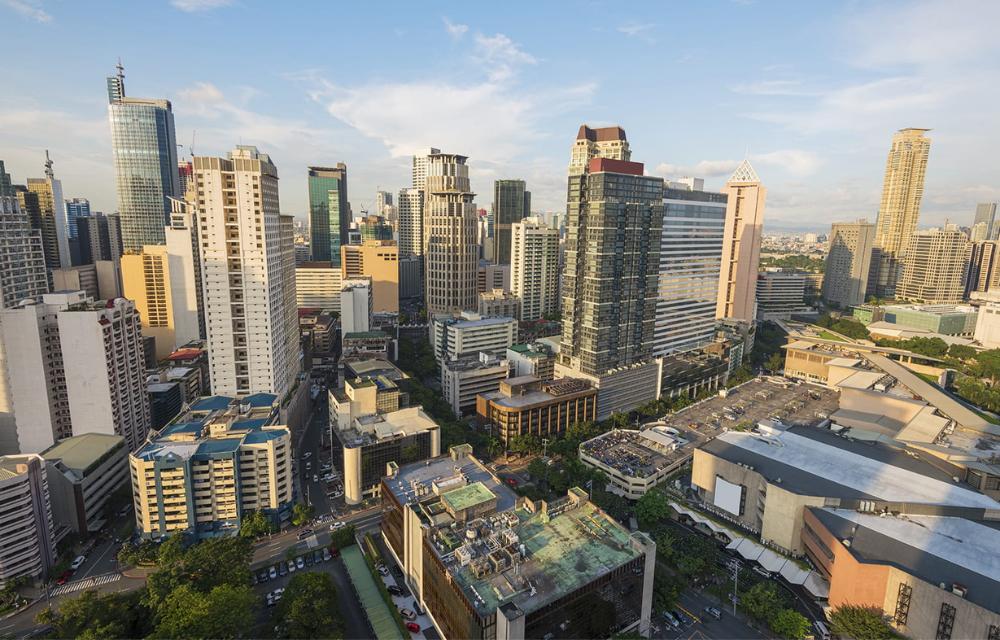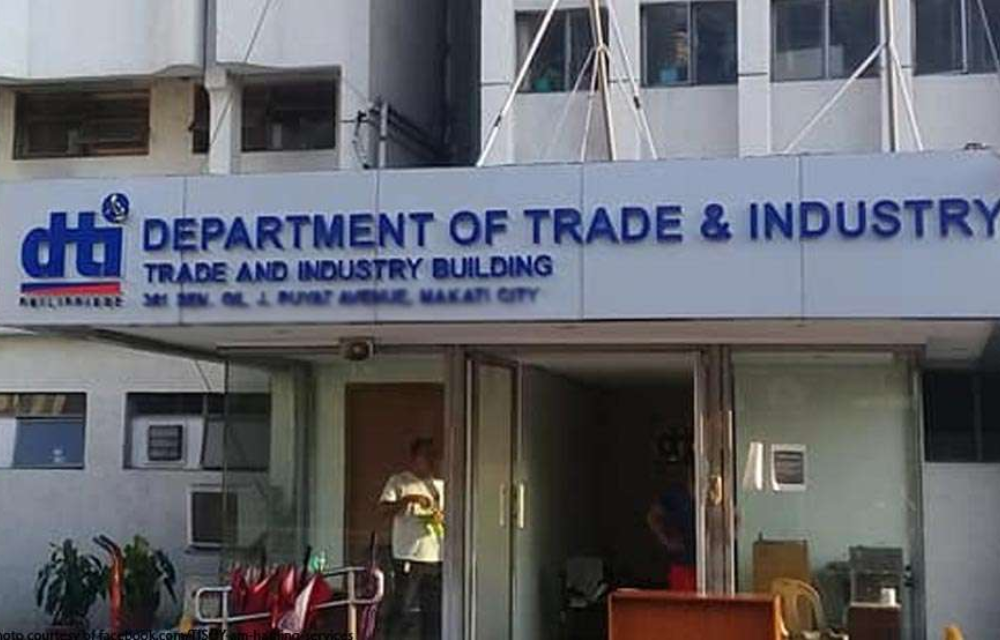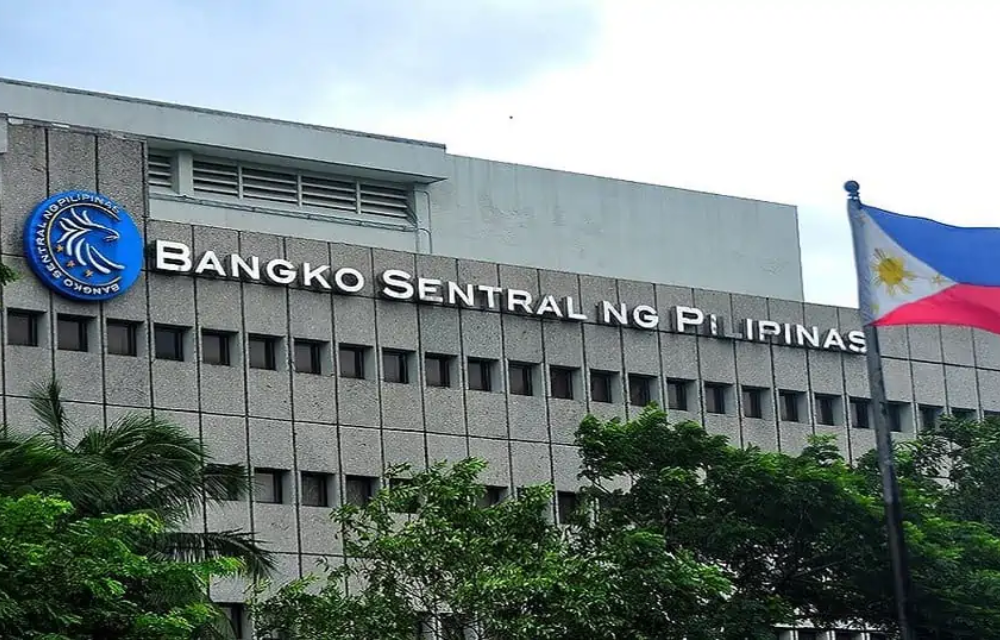Starting a business in the Philippines in 2026 presents an exciting opportunity for entrepreneurs looking to tap into a vibrant and growing economy. With projections indicating a rise in economic growth to 7.5% this year, the Philippines is poised to be a hotspot for business ventures.
This positive outlook, coupled with government reforms aimed at improving the ease of doing business, creates a conducive environment for both local and foreign investors. The country's strategic location in Southeast Asia, robust consumer market, and burgeoning industries make it an ideal destination for business expansion and new startups.
Ever wondered how it would be if you started working on an idea that's brewing in your mind, and started a business with it? Or how it would feel to start taking control of your time and money, and be your own boss? In this post, we’ll cover the basics of how to start a business in the Philippines.
In this article, we’ll guide you through the essential steps to start and register your business in the Philippines. From understanding the legal requirements and choosing the right business structure to securing the necessary permits and finding the perfect location, we'll provide you with a comprehensive roadmap to ensure your business is set up for success.
Whether you're an aspiring entrepreneur or a seasoned business owner looking to expand into new markets, our guide will equip you with the knowledge and resources needed to navigate the Philippine business landscape effectively.
Editor's note: Got questions about putting your idea online? Get instant answers on GoDaddy Asia Facebook Messenger now.
Why would you want to register your business?
Are you wondering “Why can't I just work silently and earn money, without going through the hassle of registering for these documents -- and paying taxes for every invoice?” Well, there are numerous reasons to register your business:
- Enterprises will be able to hire you at your rates. If you are a registered business, huge companies and enterprises will be able to secure your services without a second thought. This is because outsourcing services can be tax-deductible in their books. Also, businesses will appreciate a standard invoice from you, as they must have all their financial transactions documented for tax purposes.
- You can have your business insured to safeguard your assets. If your business is insured, your suppliers and contractors can be assured that whenever they provide you with materials, they will get paid, even if hard times come about (I'm looking at you, COVID-19).
How to register and start a business in the Philippines?
Before we begin, we will assume that you already have the business idea and validate your idea.
1. Figure out which industry you want to start a business in
The Philippines presents a dynamic and growing economy, making it an attractive destination for business ventures.

Since 2010, the country has shown steady economic growth, driven by various sectors, including services, manufacturing, and real estate. In recent years, the government has implemented reforms to improve the business environment and attract foreign investments, making it easier for foreigners to start and operate businesses in the Philippines.
Do proper research into different industries to assess the opportunities before zoning in on one for your business.
Key industries for foreign investment in the Philippines include real estate, business process outsourcing (BPO), manufacturing, and information and communications technology (ICT).
The BPO sector, in particular, is one of the most dynamic, contributing significantly to the country's GDP and providing employment to millions of Filipinos. The semiconductor manufacturing industry is also growing, bolstered by the global demand for electronics.
According to the 2023 Investment Climate Statement, the majority of foreign direct investment (FDI) equity investments in the Philippines were directed towards manufacturing, ICT, financial services, and real estate.
For those looking to start a business in the Philippines, the best industries to consider are those that align with the country's growth areas and government priorities. The real estate industry continues to be a strong sector, driven by both commercial and residential developments. The retail and e-commerce industry is also booming, thanks to a young and tech-savvy population.
2. Determine your business type
The next step when starting your own business in the Philippines is to decide whether you will be a brick-and-mortar type of business where you will have a storefront, or whether you will do business purely online.
COVID-19 has driven both customers and businesses online because it’s a touch-free way to do business.

If you are already thinking of setting up an online store but are unsure what to do, look no further as we have a guide on how to start making online sales, where we’ll give you a step-by-step look into the process of building your online presence.
After deciding between online and offline presence, you will now determine what kind of business type you will have based on ownership and liability.
Types of business in the Philippines
Your business type can be either one of these three:
- Sole Proprietorship - A sole proprietorship is a business structure where the owner is any individual who has total control of the business. You are basically "the business." However, note that you and your personal assets are liable for any damages you might incur when doing business using this structure. Because this is the easiest way in for a new business or freelancer, this article will focus on this kind of business type.
- Partnership - A partnership is the right choice for two or more individuals who wish to share in building the assets of the business. You can either start as a General Partnership, where you are involved in the operations of the business but have unlimited liability, or as a Limited Partnership, where you delegate operations to another person, but have limited liability according to the extent of your investment in the business.
- Corporation - This is where a group of individuals wish to start a company, taking on both the benefits and the requirements of being a recognized corporation. You will need a minimum of 1 million (1,000,000) in authorized stock to begin with and should be registered with the Securities and Exchange Commission (SEC).
There is also the option to register as a One-Person Corporation, where you can register as the sole owner of the corporation for doing business. This business structure comes with another subset of requirements and liabilities, which we will save for another article.
For foreigners who wish to start a business in the Philippines, there is a separate list of requirements and limitations when registering your business.
Since we're gearing this article for individuals who wish to start their own businesses, we'll not cover the requirements for partnerships and corporations. For more information about these business types, see this guide on how you can apply for a business on the Philippine Central Business Portal.
Need help choosing a business name? Check out GoDaddy Airo to jumpstart your brainstorming process.
Once you have determined your business type, grab the proverbial pen and paper! Time to name your new venture. It’s a good idea to select a name for which the matching domain is available, as your domain name will become your web address.
For example, for a business named Daraga Carpentry, having a domain name of DaragaCarpentry.com or DaragaCarpentry.ph minimizes customer confusion.
Related: Best home-based business in the Philippines
3. Register the business name
Once you’ve chosen a business name and registered the matching domain name, you’ll want to register your business name. This is the name you will be using when issuing receipts, registering for a bank account, creating signs for your storefront and more.
To begin registering for your business name, go to the Department of Trade and Industry (DTI) Business Name Registration Service and start the registration process. You will need to pay the following registration fees for your registration:
| Type of Registration | Fee (in Philippine Pesos) |
| Barangay level | 200 |
| Regional level | 1,000 |
| National level | 2,000 |
Your registration type will determine the extent of your business's registration, and whether you can do business within a certain scope with your registered name.
A small store selling only within its vicinity should opt for a Barangay level registration.
However, if you're a freelancer and would like to service clients all over the country, you will need to register with the National level type of registration, so you can issue receipts for clients all over the country. This also protects your business name from being copied by people outside of the registration region.
Once your business name is registered, you can now proceed to the next step.
4. Apply for permits, licenses and clearances
Now that you have your business name registered, you can now proceed to apply for your clearances, permits and licenses.
The following are the necessary documents for you to register your business in the Philippines.
Register for Barangay Clearance
The most basic unit of local governance in the Philippines is the barangay, and with this, you will need to register for a barangay clearance before anything else. This is one of the first permits you need to apply for as this is needed to secure a municipal permit later.
For you to register for a barangay clearance, you will need:
- Two valid IDs
- Proof of Address. Contract of Lease (if rented) or Certificate of Land Title (if owned)
- Certificate of registration from DTI (which you completed previously)
Apply for a Mayor's or Municipal Permit
This is where you will now head to the city hall of where your business is located. Here, you will register for a Mayor's Permit, where you will be given the authorization to conduct your business within the city.
For you to register for a Mayor's Permit, you will need the following:
- Two valid IDs
- Proof of address in the form of either a lease contract (if rented) or Certificate of Land Title (if owned)
- Certificate of registration from DTI
Remember that these are the documentary requirements for registering your business at a municipal level. You might also need a certificate of insurance for your company, depending on your location (Makati City, where most businesses are, requires you to have one).
Register with the Securities and Exchange Commission (SEC)
The SEC was established to oversee the registration of companies, monitor compliance with corporate laws, and protect investors by enforcing financial disclosure requirements and mitigating fraudulent activities.
This not only enhances investor confidence but also promotes sustainable economic growth.
You need to register with the SEC and abide by its policies.
The SEC requires companies to register and disclose pertinent financial information, the SEC fosters a culture of transparency and accountability. This is particularly important for foreign investors who need assurance that the market is well-regulated and secure.
To register a business with the SEC in the Philippines, several documents are required.
First, the company must submit a duly accomplished application form, which can be obtained from the SEC's website or office. Additionally, the Articles of Incorporation and By-laws, which outline the company’s structure and operational guidelines, must be prepared.

These documents need to be notarized and submitted along with a Treasurer’s Affidavit, which confirms that the required capital has been subscribed and paid by the shareholders.
Other necessary documents include a cover sheet, a joint affidavit of two incorporators to confirm compliance with SEC requirements, and various forms depending on the nature and structure of the business entity.
Any foreign corporations seeking to establish a presence in the Philippines must submit additional documents such as the Certificate of Incorporation from the home country, authenticated by the Philippine Embassy, and proof of inward remittance of capital.
All applications and supporting documents must be in four copies and in A4 size bond paper with cover sheets. Documents signed abroad must be notarized and consularized.
Register with the Department of Trade and Industry (DTI)
The DTI in the Philippines is a crucial government agency responsible for fostering a conducive business environment and promoting economic growth.

Established to streamline business operations and enhance trade, it provides essential services such as business name registration, support for micro, small, and medium enterprises (MSMEs), and the issuance of necessary permits and licenses. The DTI's efforts aim to simplify the process of starting and operating a business in the Philippines, making it more accessible for local entrepreneurs and foreign investors alike.
To register a business with the DTI, several key documents are required.
These include a completed application form, a Barangay Clearance to ensure compliance with local ordinances and a valid government-issued ID of the business owner. Additionally, a Certificate of Registration from the DTI is necessary to provide the business with a legal identity and the exclusive right to use its chosen business name.
For those establishing a partnership or corporation, it is also essential to secure registration with the SEC to obtain a legal or judicial entity status. Completing these steps ensures that a business is legally recognized and can operate within the regulatory framework of the Philippines.
5. Apply with the Bureau of Internal Revenue (BIR) to print receipts and invoices
This next step is perhaps the most complicated one.
You’ll need to register with the BIR, where you’ll finally get the certificate of registration and where you can finally issue receipts. You can only begin doing business once this has been completed.
Completing this step requires the following documents:
- DTI Certificate of Registration
- One of these:
Occupational Tax Receipt (for non-licensed professionals, such as performers or writers)
Professional Tax Receipt (for licensed professionals, such as engineers or accountants)
- Barangay Business Clearance
- Mayor’s Permit
- Certificate of Lease (if the place of business is rented) or Certificate of Land Title (if owned)
- Government-issued identification (passport, driver’s license, birth certificate, etc.)
Once you have the documents on hand, proceed to the nearest Regional District Office (RDO) where your business is registered.
You will need to pay a Php500 registration fee at a minimum, so make sure you have enough cash when going to your RDO.
Check your nearest RDO here.
Now, there are two kinds of registration with the BIR for your business:
- Registering for a new TIN (Tax Identification Number) or
- Updating your existing TIN
You can find the steps and forms needed to register for a new TIN here and update your TIN here.
I won't go into detail on how to exactly go through these steps as these are outlined on the bureau's website. However, the steps are straightforward once you arrive at the BIR office.
What’s more, most BIR offices have the entire process displayed in a huge tarpaulin, so you won’t miss it. And if you do get lost, there’s always the information desk at the front.
Here are some important details taken from the BIR website that you need to know when applying for the right to to print receipts and invoices:
Checklist of required documents
| Type | Document | Where to Secure |
| Manual Bound Receipts/Invoices | BIR Form No. 1906 (2 originals) | RDO – Client Support Section Area or LTD, Downloadable at BIR website (www.bir.gov.ph) |
| Final & clear sample of OWN Principal/Supplementary Receipts Invoices (1 original) | New Business Registrant Counter/Taxpayer-applicant | |
| Last issued Authority to Print (ATP) (1 photocopy) or Printer’s Certificate of Delivery (PCD) (1 photocopy) or Any booklet from the last issued ATP for subsequent application (Booklet need to be presented) | Taxpayer | |
| Loose Leaf Receipts/Invoices | BIR Form No. 1906 (2 originals) | RDO – Client Support Section Area or LTD, Downloadable at BIR website (www.bir.gov.ph) |
| Permit to Use Loose Leaf Official Receipts or Sales Invoices (1 photocopy) | BIR Client Support Section | |
| Final & clear sample of OWN Principal Receipts / Invoices (1 original) | New Business Registrant Counter/Taxpayer-applicant | |
| Last issued Authority to Print (ATP) (1 photocopy) or Printer’s Certificate of Delivery (1 photocopy) or any copy of printed loose leaf receipts/invoices from the last issued ATP for subsequent application | Taxpayer |
Additional Documents for Representatives
| Type | Document | Where to Secure |
| Individuals | Special Power of Attorney (SPA) executed by the taxpayer-applicant (1 original) | Taxpayer-applicant being represented |
| Any government-issued ID of the taxpayer and authorized representative (1 photocopy) | Taxpayer-applicant’s Authorized Representative | |
| Corporations/Non-individuals | Board Resolution indicating purpose and the name of the authorized representative (1 original) or Secretary’s Certificate (1 original) | Incorporators, Board of Directors |
| Any government-issued ID of one of the signatory and the authorized representative (1 photocopy) | Taxpayer-applicant’s Authorized Representative |
Processing Time and Fees
| Step | Fees to be Paid | Processing Time | Person Responsible |
| Get a queuing number | None | 2 Hours | Registration Officer RDO-CSS/LTD |
| Call queuing number and receive the application | None | 2 minutes | Registration Officer RDO-CSS/LTD |
| Verify taxpayer’s existence | None | 33 minutes | Registration Officer RDO-CSS/LTD |
| Validate the accuracy and completeness of documentary requirements | None | 1 Hour, 30 minutes | Registration Officer RDO-CSS/LTD |
| Assign a Document Locator Number (DLN) | None | 30 minutes | Registration Officer RDO-CSS/LTD |
| Encode and generate ATP correspondence | None | 2 Days | Registration Officer RDO-CSS/LTD |
| Review and initial/sign ATP | None | 3 Hours, 20 minutes | CSS Chief/ARDO RDO-CSS or Section Chief-Registration/Asst. Chief/Chief LTD |
| Receive approved ATP and BIR Form No. 1906 | None | 5 Minutes | Registration Officer (Releasing) RDO-CSS/LTD |
6. Open a corporate bank account
Opening a corporate bank account is a critical step when starting a business in the Philippines. This account serves as the official financial hub for your business, allowing you to manage funds, process transactions, and maintain clear financial records. It helps in separating personal and business finances, which is crucial for legal, tax, and financial clarity.

For both foreign and local businesses, having a corporate bank account is necessary to ensure compliance with regulatory requirements and to facilitate smooth financial operations. It also boosts the credibility of your business, making it easier to engage in professional dealings with suppliers, clients, and investors.
Even if you're starting an online business, opening a corporate bank account is highly recommended. Online businesses also need to handle payments, process payroll, and manage operational expenses.
A dedicated corporate account provides the infrastructure to manage these transactions efficiently and ensures that your financial practices are aligned with legal standards.
To open a corporate bank account in the Philippines, you'll need various documents including the Articles of Incorporation, a Certificate of Registration from the SEC or the DTI, and valid identification for authorized signatories.
Additional requirements may include a Treasurer’s Affidavit and proof of business address, depending on the bank's policies.
7. Choose an office or store location (if your business is not online)
Selecting the right location for your office or store is a critical decision that can significantly impact the success of your business in the Philippines.

If you want to open, say, a Sari-Sari store, the ideal location should align with your business type, target market, and operational needs. High-traffic areas, such as shopping malls or busy commercial districts, are beneficial for retail stores as they maximize visibility and foot traffic.
For offices, proximity to key establishments like restaurants, banks, and public transport hubs can enhance convenience for employees and clients. It's also important to consider the local competition, accessibility, and rental costs to ensure the location supports long-term business growth.
In the Philippines, business districts like Makati, Bonifacio Global City (BGC), and Ortigas Center are popular choices due to their modern infrastructure and accessibility.
For businesses catering to local communities, choosing a location within residential areas or local commercial hubs might be more appropriate. Additionally, compliance with zoning laws and obtaining the necessary permits from local government units (LGUs) are essential steps in setting up your business location.
Evaluating these factors thoroughly will help you select a location that not only meets your immediate business needs but also positions you for future success.
Now you’re ready to run your business!
Completing this last step should give you at least the following documents:
Certificate of Registration (COR)
This proves that the business is an officially-recognized business.
Books of Accounts
You have two options here. You can either use:
- Manual Books of Account, where you hand-write all the transactions in your business or
- Loose-leaf Books of Account that are printed instead of being handwritten, including journals and ledgers. Bookkeeping through Microsoft Excel (spreadsheets) can be considered as a loose-leaf book of account as well
- Computerized Books of Account, where a program or computerized system of bookkeeping (something akin to an Enterprise Resource Planning or ERP system) that is usually common for businesses with complex operations.
For freelancers, it is usually required to have two books of accounts. Register your books by completing and submitting BIR Form 1905, together with your books of account at the RDO where your business is registered.
Authority to Print (ATP)
An ATP is authorization by the BIR for you to print out receipts when accepting payment in your business name.
Printed receipts
This can be acquired from BIR itself, after acquiring the ATP. These are the receipts that you will write on manually whenever you receive payment for services.
Computerized receipts can have more complex requirements, and are most commonly needed by brick-and-mortar storefronts. Check out this link for more information on registering for this system.
Embark on your business journey in the Philippines today
Starting a business in the Philippines in 2026 offers great opportunities due to a growing economy and supportive government policies. Following the steps in this guide will help you set a strong foundation for your business. Whether you're a local or foreign entrepreneur, the Philippines offers a dynamic market environment for growth.
Thorough preparation and compliance with regulations are key to success. The thriving economy and strategic market approach will help you navigate challenges and seize opportunities. With proper planning and execution, your business in the Philippines can thrive and contribute to the country's vibrant economy.
Now then. It’s time to get busy, and to start promoting your business.
Stay safe, and good luck!
Editor's Note: This article was first published on 5 April 2021 and updated on 13 January 2023, 20 September 2024,18 December 2024 and 12 December 2025. It also contains content written by Nigel Seah.









